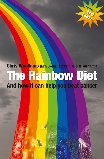These CANCERactive guidelines on nutrition and physical activity are for people with cancer who want to increase their personal odds of survival; they include adhering to the colourful Mediterranean diet, consuming plenty of probiotic foods, assimilating plenty of vitamin D (sunshine or supplements), managing stress, taking at least 2.5 hours of medium intensity aerobic exercise per week (e.g.speed-walking), and avoiding environmental toxins.
Diet:
You should adhere to the Rainbow Diet, consuming good levels of nourishing whole foods - whole soluble fibres such as pulses, grains like oats, vegetables and nuts and seeds, olive oil and fish oils, avocado and fruits, probiotic and prebiotic foods. This lifestyle diet involves good levels of vitamin D, fresh air and avoiding environmental toxins. The colourful Mediterranean diet has more research to support it for cancer prevention, cancer survival and restricting cancer recurrence that any other diet by far. In 2019 and 2020 it was voted the Healthiest Diet in the World, and, the best Plant-based Diet by 41 Professors, Nutritionists and Dieticians.
Exercise:
You should be doing moderate exercise 3-4 days a week, each session lasting for 45 - 60 minutes. 3 to 5 hours per week in total. ’Moderate exercise’ is defined as exercise where you get out of breath for at least 25 minutes. You should also consider 2-3 sessions with yoga, Tai Chi or similar complementary therapies.
Research
In the USA, the American Cancer Society conducted research on stage 3 cancer patients, all of whom had had chemotherapy and surgery. Those who adhered most closely to the ACS guidelines on Diet and Exercise across the seven year research period had 31% less cancer recurrence, and 42% less deaths. Their guidelines are almost exactly those of CANCERactive.
Exercise
3-5 hours of 'vigorous exercise' per week has been shown to reduce aggressive and fatal prostate cancer and increase survival times.
Even 'moderate exercise' (of 2.5 hours a week) has been shown to increase survival times in breast cancer.
Diet
Cancer survivors tend to have healthier diets than the average person of the same age, according to
research. However, they still over-estimate how healthy their diet really is.
There is a lot you can do to strengthen your body in the fight against cancer
It is not just about Diet and Exercise though. For people who don’t use tobacco products the most important yet simple changes a person can make to prevent cancer involve a focus on a good, healthy diet, a sensible body weight and regular exercise (American Cancer Society, 2012)
People who have cancer are often extremely motivated to seek out information on diet and exercise.
Go to: The Active8 Programme
But, of course, there are other factors, such as environmental toxins and stress management, and you might look at Hyperbaric Oxygen, supplements, gut imbalances and even fasting. However, the biggest changes you can make if you want to increase your personal odds of beating cancer starting immediately, are taking exercise, maintaining a healthy body weight and following a good, healthy diet.
Building a personal, cancer-fighting program
Your guidelines on how to build yourself a personal programme incorporating a healthy diet, physical activity and a whole lot more, start here.
Go to: Six Steps to building a personal cancer-fighting programme
The Rainbow Diet is an important part of the CANCERactive recommendation - it incorporates not just a plethora of colourful fruits and vegetables as the name suggests, but recommendations on cutting common sugar, processed and packaged foods, on eating healthy fats rather than saturated fats, on meat and fish consumption, on nuts and seeds, and even on red wine consumption. It has chapters on how to reduce your estrogen naturally and how to naturally clean up your body.
